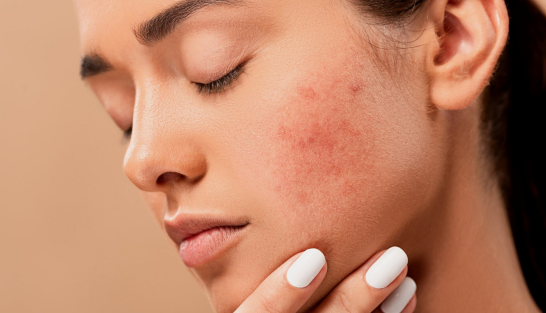Revitalize Your Skin: Effective Treatments for Acne Scars
Acne scars are more than just physical marks; they can affect self-esteem and confidence. Fortunately, advancements in skincare and dermatological treatments offer effective solutions to reduce and manage acne scars. This guide explores various treatments and techniques aimed at revitalizing your skin and restoring its natural beauty.
Understanding Acne Scars
Acne scars are the result of inflamed blemishes caused by skin pores engorged with excess oil, dead skin cells, and bacteria. When the pore swells, a break occurs in the follicle wall, leading to shallow or deep scars. There are different types of skin treatment for acne scars, including:
- Icepick Scars: Small, deep holes in the skin's surface.
- Boxcar Scars: Broad depressions with sharply defined edges.
- Rolling Scars: Broad depressions with sloping edges.
- Hypertrophic Scars: Raised scars that are usually reddish.
Each type requires a tailored approach to treatment.
Skincare for Acne Scars
Effective skincare routines play a crucial role in reducing the appearance of acne scars and promoting skin healing. Key components of a skincare regimen for acne scars include:
- Cleansing: Use a gentle cleanser to remove dirt and oil without irritating the skin.
- Exfoliation: Regular exfoliation helps remove dead skin cells, promoting cell turnover and fading scars over time. Avoid harsh scrubs that can aggravate acne scars.
- Moisturizing: Hydrating the skin helps maintain its barrier function and improves overall texture. Look for moisturizers containing ingredients like hyaluronic acid or ceramides.
- Sun Protection: UV rays can darken acne scars, making them more visible. Use a broad-spectrum sunscreen with SPF 30 or higher daily.
- Topical Treatments: Products containing ingredients such as retinoids, vitamin C, niacinamide, and alpha hydroxy acids (AHAs) can help fade acne scars and improve skin texture.
Professional Treatments for Acne Scars
While skincare can improve mild acne scars, more severe or persistent scars may require professional treatments. Here are some effective options:
- Chemical Peels: A chemical solution is applied to the skin to exfoliate and improve its appearance. Peels can be superficial, medium, or deep, depending on the depth of the scars.
- Microneedling: This procedure involves using tiny needles to create micro-injuries in the skin, stimulating collagen production and promoting smoother skin texture.
- Laser Therapy: Various laser treatments, such as fractional laser therapy and intense pulsed light (IPL), can target acne scars by promoting collagen remodeling and skin resurfacing.
- Dermal Fillers: Injecting fillers, such as hyaluronic acid, into acne scars can temporarily improve their appearance by filling in depressions and creating a smoother skin surface.
- Microdermabrasion: This non-invasive procedure uses a diamond-tipped device to gently exfoliate the skin, improving its tone and texture over time.
Choosing the Right Treatment
Selecting the appropriate treatment for acne scars depends on several factors, including scar type, skin type, and desired outcomes. It's essential to consult with a qualified dermatologist or skincare professional to determine the best approach for your specific needs.
During your consultation, discuss:
- Treatment Goals: Clearly communicate your expectations and desired outcomes.
- Skin Sensitivity: Inform your provider of any allergies or sensitivities to ensure safe treatment options.
- Downtime: Consider the recovery period associated with each treatment and how it fits into your lifestyle.
Aftercare and Maintenance
After undergoing professional treatments for acne scars, proper aftercare is crucial for optimal results and long-term skin health. Follow these post-treatment guidelines:
- Avoid Sun Exposure: Protect your skin from the sun by wearing sunscreen and protective clothing to prevent hyperpigmentation and UV damage.
- Follow Skincare Recommendations: Use recommended skincare products and avoid harsh chemicals or exfoliants that could irritate the skin.
- Attend Follow-up Appointments: Schedule follow-up visits as advised by your dermatologist to monitor progress and address any concerns.
- Maintain Healthy Habits: Eat a balanced diet, stay hydrated, and manage stress levels to support overall skin health and healing.
Conclusion
Achieving smoother, healthier skin free from acne scars is possible with the right combination of skincare routines and professional treatments. By understanding the different types of acne scars and available treatment options, you can make informed decisions about revitalizing your skin. Whether you choose to focus on skincare products, professional treatments, or a combination of both, consistency and patience are key to achieving noticeable improvements in acne scar appearance. Consultation with a dermatologist ensures personalized care and guidance tailored to your skin's unique needs, helping you on your journey to revitalized skin and renewed confidence.





Comments